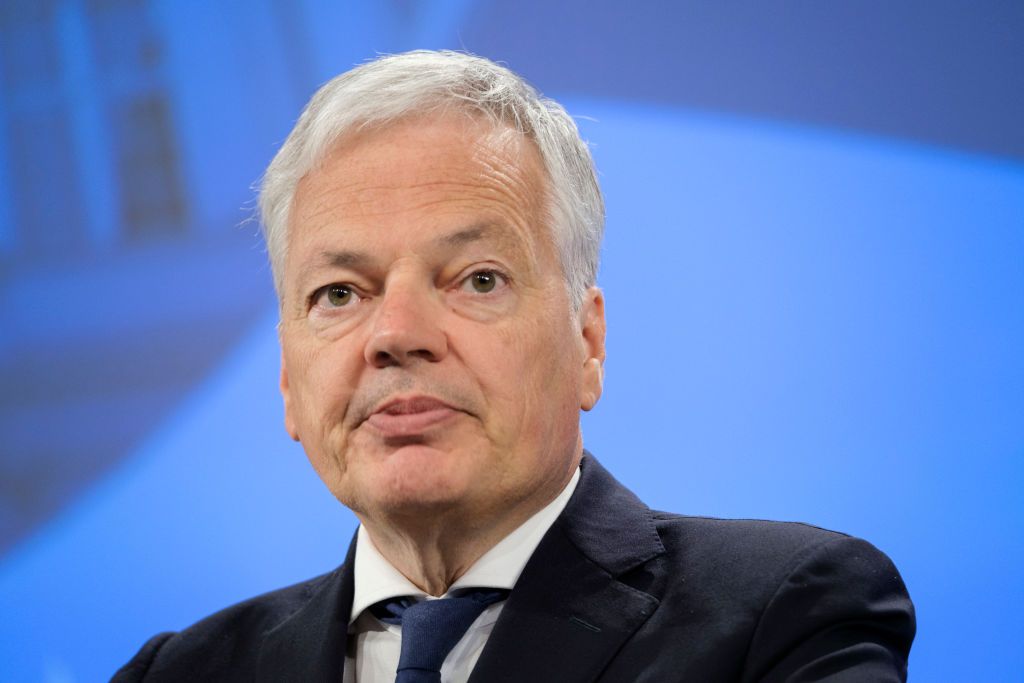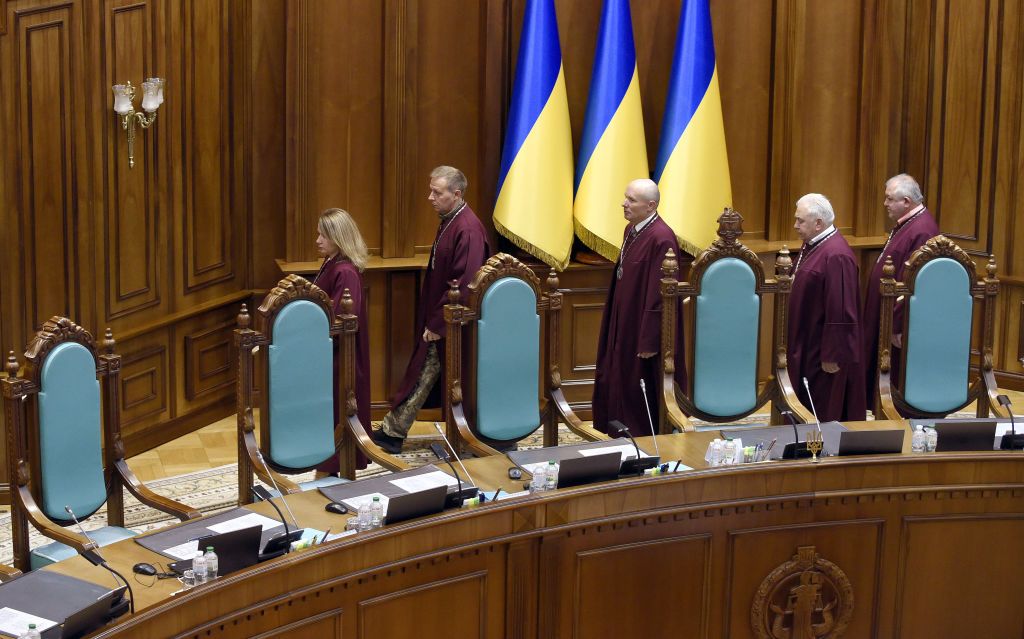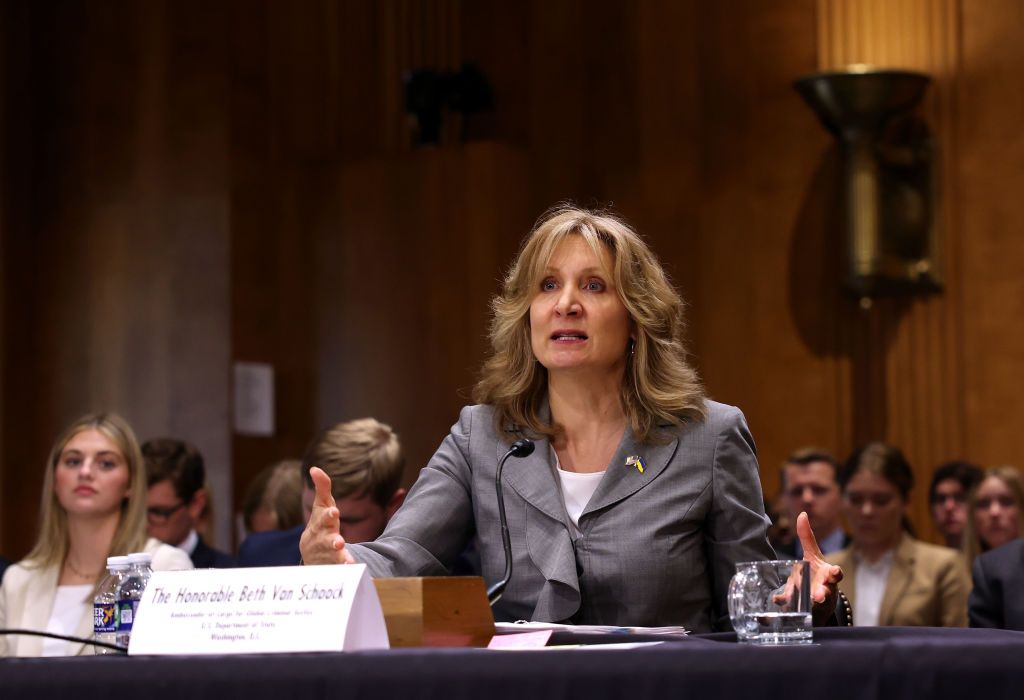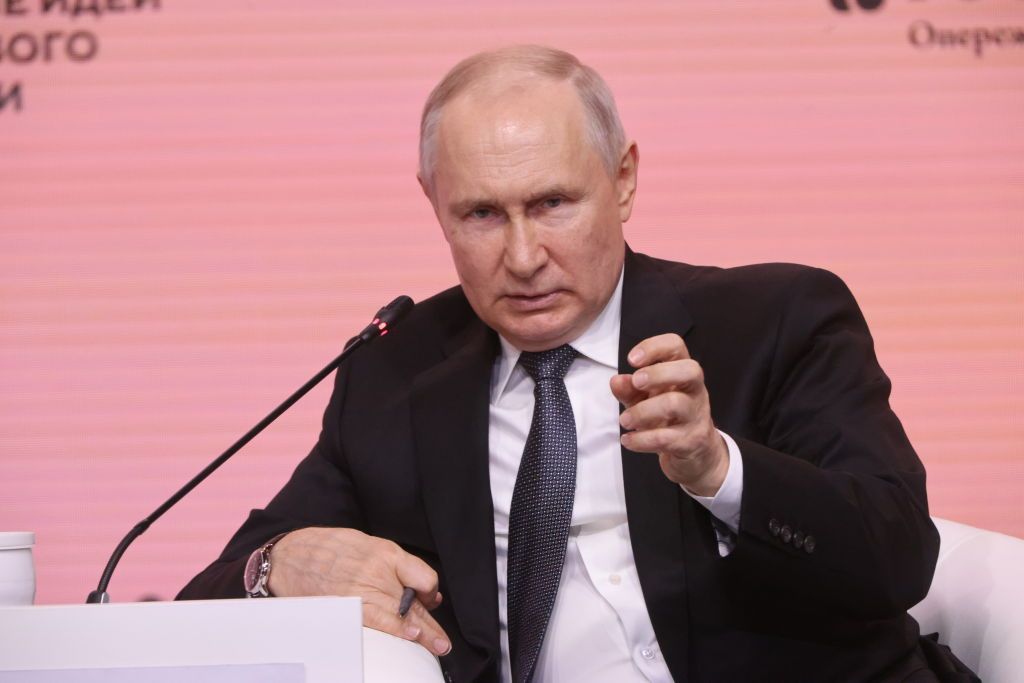Ukraine's fight to bring Russian leadership to justice puts legal systems to ultimate test

In pursuit of justice for Russia's many war crimes, Ukraine is actively seeking the establishment of an international tribunal.
The International Criminal Court (ICC) has already launched investigations into alleged Russian war crimes, crimes against humanity, and genocide in Ukraine.
However, the ICC lacks jurisdiction to prosecute a crime of aggression, which under the Rome Statute qualifies as a "leadership crime" committed by people holding a prominent political, civil, or military position. Neither Ukraine nor Russia are signatories to the Rome Statute of the ICC.
"There's a legal gap. There is no international mechanism to investigate and prosecute crimes of aggression against Ukraine," Anton Korynevych, the Foreign Ministry's ambassador-at-large, told the Kyiv Independent.
Russia has veto power in the UN Security Council. The Ukrainian government has advocated for alternative options to charge Russia's top leadership, including Vladimir Putin, for waging war.
Three options are being considered: a special tribunal established under the United Nations General Assembly (UNGA), a tribunal formed through an international agreement and open for signing, and a hybrid tribunal combining Ukrainian and international elements.
The Ukrainian government is trying to persuade Western allies to back what it considers the most legitimate option: the special tribunal established under the UNGA.
Meanwhile, Ukrainian legal experts from civil society argue that the UNGA approach may not address the demands for justice from victims' families. It would solely target the high-ranking Russian leadership, not those directly responsible for committing the crimes.
Deliberations on the best approach are still underway, and neither tribunal option has been adopted so far, with each alternative having its challenges.
Primary crime
The crime of aggression is commonly referred to as the "primary crime" from which many other international crimes often originate.
"Proving the crime of aggression is much easier… It will immediately lead to the top," said Ambassador Korynevych, a specialist in international criminal law who is the Ukrainian government's point person on establishing such a tribunal.
But prosecuting Russian crimes of aggression against Ukraine falls outside the jurisdiction of international courts. Ukraine and Russia are not among the 123 countries party to the Rome Statute, the international treaty that established the ICC and conferred jurisdiction upon it.
European officials have encouraged Ukraine to ratify the Rome Statute and the Kampala Amendments, encompassing the crime of aggression.
"The ratification package is ready to be sent to the parliament by the president for a vote," Nadiia Volkova, the head of the Kyiv-based Ukrainian Legal Advisory Group (ULAG), told the Kyiv Independent.
Despite not being a signatory of the Rome Statute, Ukraine willingly submitted to the ICC's jurisdiction in 2014 and extended its commitment indefinitely in 2015.
After Russia launched its all-out war, Karim Khan, prosecutor of the International Criminal Court, initiated an investigation focusing on genocide, crimes against humanity, and war crimes in Ukraine.
This has already begun to produce results.
The ICC issued arrest warrants for Putin and Maria Lvova-Belova, the Russian official allegedly tasked with overseeing the forced deportations of Ukrainian children to Russia, on March 17.
As a result, the Rome Statute signatories are now bound to arrest Putin and Lvova-Belova. The arrest warrant has already caused South Africa to seek ways to dissuade Putin from attending the BRICS summit, scheduled for Aug. 22 in Johannesburg.
Another notable development emerged two months later. The International Center for the Prosecution of the Crime of Aggression (ICPA) started to gather evidence on the Russian political and military leadership's crimes against Ukraine.
The ICPA is unique as it is the first international effort to investigate the crime of aggression, officially launched after World War II.
Yet, Kyiv's hesitance to ratify the Rome Statute prompted a race to establish a special tribunal.
"A special tribunal is needed to avoid a situation where national courts and the ICC bring the lower ranks of the Russian military to justice, yet Russia's military and political leadership manage to avoid culpability," Korynevych added.
Special tribunal
The special tribunal for the crime of aggression against Ukraine requires the international community's involvement. Ukraine didn't have broad international support in the spring of 2022 as almost nobody hesitated to discuss a tribunal into Russia's leadership.
Ukraine's resistance and governmental efforts gave more credence to the idea.
"Today, the difficulty of creating a feasible mechanism for punishing the crime of aggression is no longer being discussed," Andrii Smirnov, deputy head of the President's Office.
NATO, the OSCE, and the Council of Europe parliamentary assembly have publicly supported the idea. The Core Group of the Special Tribunal for the Russian crime of aggression consists of 37 countries.
Ukraine is looking to the UNGA, which Russia also recognizes, to seek better international legitimacy for the special tribunal.
"This is the fastest, most legitimate, most credible way – to create a tribunal in the widest possible global format, bypassing the UN Security Council," Smirnov told the Kyiv Independent.
A special tribunal through UNGA could be carried out by the 140 states that approved the resolution denouncing Russian aggression in Ukraine. Only five countries, including Russia, opposed it.
However, some countries oppose a special tribunal, fearing repercussions for their leadership in other conflicts, including some of Ukraine's key backers.
According to Smirnov, Ukraine is collaborating with these countries to find a mutually agreeable framework backed by arguments against such concerns.
"No NATO allies' (previous) military campaigns aimed at territorial annexation, genocide, or mass crimes against humanity," he explained.
Another option discussed is establishing a special tribunal via the large-scale international treaty with Ukraine's signature and "opened for signing and ratification to all countries," said Smirnov.
Over a dozen EU member states have already launched their own investigations based on universal jurisdiction, as well as the involvement of their citizens in Russia's war.
In late May 2022, the European Parliament supported a resolution titled "on the fight against impunity for war crimes in Ukraine."
On Jan. 19, the parliament supported an earlier resolution calling for a special international tribunal on the crime of aggression against Putin and his companion in the aggression against Ukraine, Belarusian dictator Alexander Lukashenko.
Ukraine's government is also considering a legal mechanism to try Russia's leadership in absentia.
"There is symbolism in convicting Putin in absentia, but it does not bring justice to the victims and their families," said Volkova, who heads the organization representing war victims in court trials.
Domestic system flooded
While the Ukrainian government is pushing for an international tribunal, the domestic legal system has taken the brunt of over 100,000 investigations into alleged Russian crimes. And it barely handles it.
"The national legal system can't manage investigations on such a scale," Gunduz Mamedov, a former Deputy Prosecutor General, told the Kyiv Independent.
Since the first trial conducted last May, Ukraine has convicted 53 Russian nationals, with a handful of verdicts issued in absentia.
"The justice system lacks the necessary experience and ample laws (to persecute war criminals)," Volkova said.
Some progress has been made as Ukrainian judges undergo extensive training in the U.K. to preside more effectively over cases involving Russian soldiers accused of war crimes.
Mamedov and Volkova said a special tribunal for the crime of aggression would not solve the issues surrounding investigations in Ukraine.
Experts advocate for creating a hybrid tribunal, bringing national and international investigators, prosecutors, and judges together.
Hybrid tribunal
The hybrid approach is inspired by successful models of Bosnia, Cambodia, and Sierra Leone as it has proven effective in holding individuals accountable for war crimes, including the conviction of former Liberian President Charles Taylor in the Special Court for Sierra Leone.
Experts are confident that a hybrid tribunal is suitable for investigating and prosecuting all four core international crimes - war crimes, crimes against humanity, genocide, and the crime of aggression.
However, Ambassador Korynevych has expressed concern that the hybrid mechanism would overlap with the ICC's jurisdiction.
The ICC selectively chooses only a few of the most challenging cases.
"Perhaps it will be against the (Russian) commanders," said Volkova.
Establishing a link between alleged Russian war crimes and leadership orders could take years for the ICC.
"The ICC could deal with the 'big fish,' and the hybrid mechanism, if created, should deal with the current (Ukrainian) investigations the ICC will not consider," said Mamedov, an expert on international humanitarian law.
He added that a hybrid mechanism could "complement" the ICC's investigations.
The hybrid tribunal could also raise concerns about the legal immunities of the Russian leadership. Putin, like any other state leader, has legal immunity from prosecution in national courts.
"Given the particularity of the crime of aggression and the ICC jurisdiction, there should be separate jurisdiction for the crime of aggression," Korynevych explained.
A tribunal into alleged Russian international crimes in Ukraine would send a strong message, underscoring that the crime of aggression knows no geographical limitations, be it in Europe or anywhere worldwide.
Ukraine and its partners are still considering the most effective option for establishing the international tribunal.
"Russia's crime of aggression against Ukraine has global consequences. The punishment should be as credible and broad as possible," Smirnov said.
"Without punishment for the primary crime, we will not be able to restore justice," said Smirnov.














